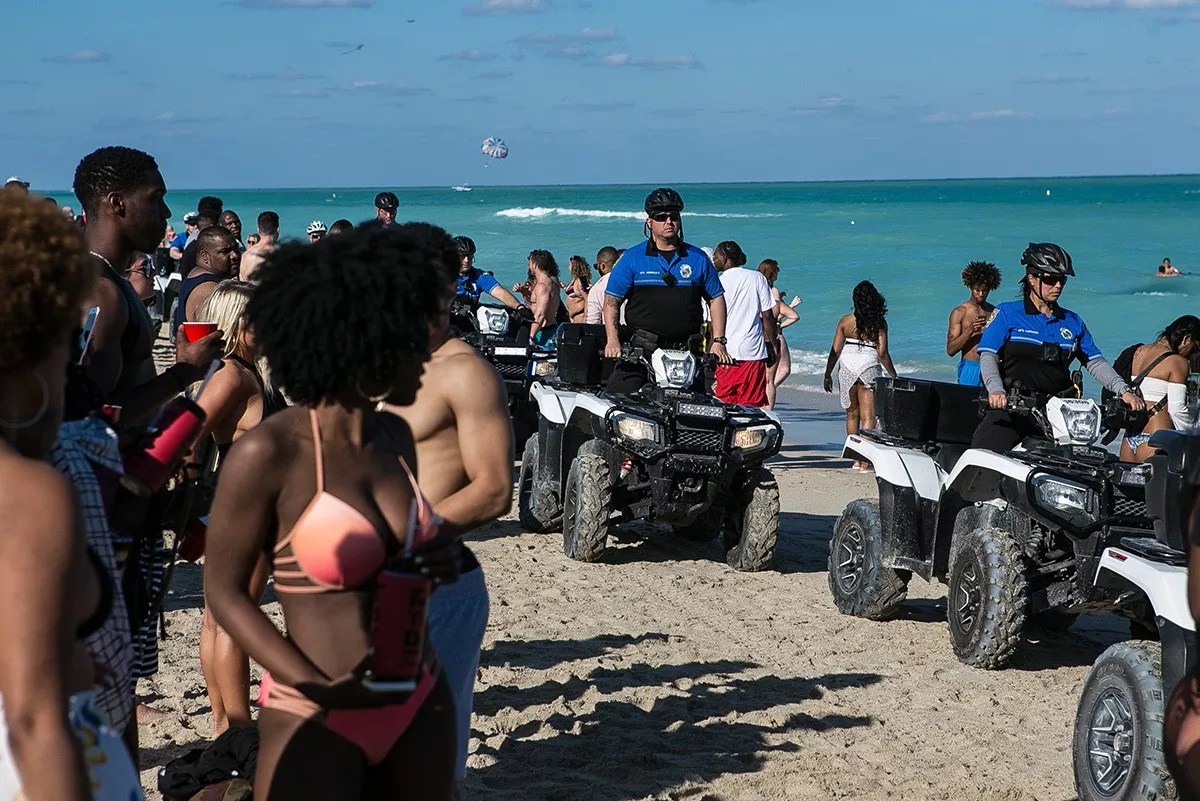
Photo by George Martinez

Audio By Carbonatix
Miami Beach began its spring break crackdown late last year, almost four months before the first college kids arrived. This past November, police Chief Daniel Oates began sending letters to college administrators and fraternity presidents warning that law-breaking students would be arrested. The city even spent $33,000 on a hard-line law-and-order social media campaign targeting undergrads.
But Miami Beach’s finger-wagging at college students may have been misguided. Arrest data from one of this year’s first major spring break weekends show that many of those charged with committing crimes were locals, the homeless, or older tourists. Of 51 arrests reviewed by New Times, only seven involved out-of-state visitors younger than 25. Only three police reports clearly identified the arrestee as a student.
Mike Palma, chairman of the Ocean Drive Association and owner of the Clevelander, alluded to this in an interview last week with local blogger Susan Askew.
“From what we have seen and gathered, it appears that a large portion of the crowds on Friday and through the weekend [last week] gathering in the street are not students,” Palma said.
To track spring break-related crimes, New Times requested South Beach reports from the first high-impact weekend, March 8 to 10. Of those 51 arrests, more than half involved people older than 25. And more than half of the arrestees were South Florida residents, not tourists.
The data appear similar the following weekend. At an emergency meeting last week, Oates told city commissioners that only 11 of the 97 people arrested March 16 to 17 told cops they were students.

Miami Beach’s spring break arrest campaign included elevator posters and bus wraps.
Photos by Jessica Lipscomb
While Miami Beach has had its share of wild spring break seasons, the city still seems to be seeking the right approach to dealing with increased traffic and raucous, sometimes violent, crowds. Despite the aggressive marketing campaign, spring break crowd volume increased 33 percent this year, according to an email newsletter from Commissioner John Aleman.
Earlier this month, viral videos showing street fights triggered the city commission to call for extreme measures. Following the emergency meeting, the police department deployed 25-member teams of officers to patrol the beach in riot gear and parked prison transport vans nearby to send a “serious” message to lawbreakers. (That plan has been criticized for targeting black visitors and ignoring the root issues.)
Oates said this year’s security plan will cost the city close to $1.5 million. Next year, that tab could almost double, according to Aleman, who says an estimated $2.7 million will be needed for safety and sanitation during spring break 2020.
“Spring break tourism is not sustainable,” the commissioner wrote in her recent newsletter. “It takes a tremendous toll on our police officers to sustain ‘alpha bravo mode’ and is not financially sustainable for the city.”